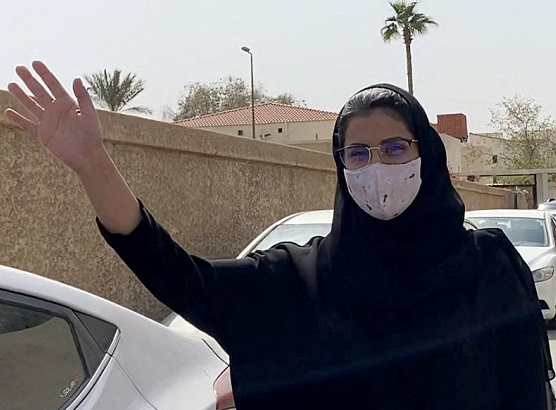A federal judge in Oregon has indicated that a lawsuit brought by Saudi activist Loujain al-Hathloul over the alleged hacking of her iPhone could move forward, despite objections from the accused party.
The case, filed against three former executives of the DarkMatter Group, a private tech firm based in the United Arab Emirates (UAE), centers around accusations that al-Hathloul’s communications were secretly monitored during her visit to the United States in 2017. The lawsuit claims that DarkMatter Group, which provides cyber-intelligence services to the UAE government, was responsible for the surveillance.
The activists’ legal team argues that the hack had serious implications for al-Hathloul’s safety and security, especially as she was known for her outspoken activism, particularly around women’s rights in Saudi Arabia. The decision to let the case proceed hinges on whether U.S. courts have jurisdiction over the actions of foreign nationals operating outside of the country.

DarkMatter Group: A Cloud of Controversy
DarkMatter Group has long been under scrutiny, especially following allegations that it was involved in cyber-espionage activities. The company’s ties to the UAE government raise further questions about its involvement in monitoring individuals who criticize the government, including al-Hathloul, a leading figure in the women’s rights movement.
Al-Hathloul, who became famous for her campaign to lift the ban on women driving in Saudi Arabia, was arrested in 2018 for her activism. Her subsequent years in detention were marked by international condemnation and growing calls for her release. The hacking incident, if proven, would add another layer to the list of challenges she’s faced in her fight for women’s rights.
What Makes This Case Important?
While the hacking allegedly started before al-Hathloul’s arrival in the U.S., the legal team insists that the impact of the cyber-attack continued to affect her during her time in America. This, they argue, justifies the case being heard in a U.S. court. The case is seen as pivotal not just for the personal implications for al-Hathloul, but also for setting a precedent on how far U.S. courts can go in regulating foreign cyber activities that affect individuals within the U.S.
The legal question is clear: Does the United States have jurisdiction over cyber-attacks originating outside its borders? In this case, the accused parties are foreign nationals working for a foreign company, but the consequences of their actions were felt on U.S. soil.
A decision on whether the lawsuit will be dismissed or allowed to proceed is expected soon. But this case is unlikely to just fade into obscurity. With growing concern over international cyber-espionage, especially involving foreign governments targeting activists, it is likely to attract more attention as it unfolds.
